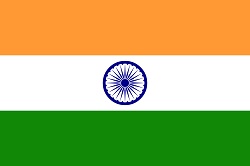 India has ignited the ire of many a drugmaker with its threat of compulsory licensing, which allows it to pull a drug's patent to make room for cheap Indian copies. But now, it could be going one step further, with domestic Natco Pharma asking the country's patent office to deny Gilead Sciences ($GILD) protection on its brand-new hep C treatment in the first place.
India has ignited the ire of many a drugmaker with its threat of compulsory licensing, which allows it to pull a drug's patent to make room for cheap Indian copies. But now, it could be going one step further, with domestic Natco Pharma asking the country's patent office to deny Gilead Sciences ($GILD) protection on its brand-new hep C treatment in the first place.
According to a Reuters source, Natco has filed a "pre-grant opposition" with India's Controller General of Patents, Designs & Trademarks that disputes the validity of the pending patent application for Gilead's Sovaldi, the just-approved wonder drug that has U.S. payers up in arms over its $84,000 price tag per 12-week treatment course. The Indian generics maker is opposing Gilead's IP protection on the grounds that the drug is not "inventive" enough, the source told the news service.
If Natco gets its way, it could add another layer to the patent struggle between the country and the multinational drugmakers looking to capitalize on its emerging-market potential. The U.S. already has its eye on India, which appears on its Priority Watch List--a distinction reserved for countries whose IP protection practices it believes need close monitoring. Natco so far boasts the country's only compulsory license, which gives it rights to produce a hotly contested version of Bayer's Nexavar. But India has said it's considering others.
California-based Gilead, for its part, has had to get used to the Sovaldi price complaints quickly, as the objections started pouring in before the drug even hit the market. Payers worried about their bottom lines have been clamoring to find a way around shelling out for every patient, with some looking at treating only the sickest patients until the arrival of rival therapies on the scene pushes prices down. Most recently, pharmacy benefits manager Express Scripts ($ESRX) said it was forming a coalition to refuse use of the drug until that time, with CMO Steve Miller arguing that Gilead's sticker price would "break the country."
Gilead believes otherwise; with a 90% cure rate, the company says Sovaldi treatment is cheaper than other alternatives down the line--a new liver alone costs about $300,000 in the U.S., COO John Milligan has noted.
But that hasn't stopped the company from voluntarily offering price breaks in some of the countries that need them most. In Egypt, which has the world's highest prevalence of the virus, Gilead has agreed to slash Sovaldi's cost by 99%, and it's also in talks with "three or four" Indian generics manufacturers that could launch the drug in India for $2,000 for 24 weeks of treatment, Reuters reported earlier this week.
But as Roche ($RHHBY) can attest, working with domestic companies to bring Indian prices down doesn't grant multinationals a guarantee that their patents are safe. The Swiss drugmaker responded to price criticism by cutting Indian prices of the breast cancer drug by 31% in 2013 and partnering with Emcure Pharmaceuticals to produce a less costly version there. But in August, the Kolkata Patent Office denied Herceptin's IP shield under claims that it wasn't properly submitted, and Mylan ($MYL) and Biocon revealed that they had biosimilars ready to go just three months later.
- get more from Reuters
Special Report: The FDA's drug approvals of 2013 - Sovaldi: Gilead hits pay dirt with a breakthrough hep C drug